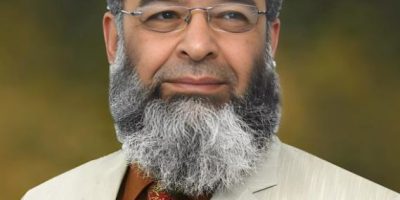THE GLASS HALF-FULL
SYED FAQIR IJAZUDDIN
Dual nationality comes instinctively to Pakistanis: they are polygamous by nature. This explains why many of them found the referendum in Scotland superfluous. Why, they argued, couldn’t the Scots be allowed to hold Scottish passports as well as British ones?
The recent Scottish referendum is the latest of a number of attempts by Scots to assert their identity as a separate nation. Their irritation at being treated as an appendage to other countries has chafed for centuries. In 1543, for example, the English King Henry VIII formalised in the Treaty of Greenwich his ambition to unite the two kingdoms, by marrying the infant Mary Queen of Scots to his young heir Edward. The Scots spurned that takeover bid.
In 1558, Mary — by this time also Dauphine- designate — signed off her kingdom to France. The premature death of her husband Francis II saved the Scots from being absorbed into France.
Her son James VI achieved the union that geography had ordained when he succeeded Elizabeth I in 1603. Scotland and England came under one crown, but remained two separate kingdoms. The political integration of the two states took another century to consummate.
Now, 300 years later, the Scottish referendum by its very demand has exposed that national independence is still an issue in the British Isles. The pre-referendum polls alarmed Prime Minister David Cameron, his deputy Nicholas Clegg and Labour leader Ed Miliband sufficiently to make last-minute forays up north to protect the union. The battle for Scotland has been won. A majority of 55.3pc has voted to maintain the status quo. The war over the United Kingdom, however, is not yet over. In a turnout of 84.6pc, almost half of the Scottish electorate — 44.7pc — voted for independence. The results of the two major cities show an interesting contrast. In the political capital Edinburgh, 194,638 voted against independence, and in Glasgow its commercial capital a marginally higher number 194,779 voted for it.
It is for armchair analysts to determine whether the cacophony of doom orchestrated by Mr Cameron helped to swing the undecided. His desperation infected six prominent banks — Barclays, Deutsche Bank, Société Générale, JP Morgan, RBC Capital Markets and Credit Suisse. They issued ‘dire warnings’ of financial disorder if Scotland detached its economy from the English pound.
Older Scots had seen it happen all too often before. Their Allama Iqbal — Robert Burns — had voiced his dismay in a poem he composed on the 1707 Acts of Union:
‘What force or guile could not subdue,
Thro’ many warlike ages,
Is wrought now by a coward few,
For hireling traitor’s wages.
The English steel we could disdain,
Secure in valour’s station;
But English gold has been our bane —
Such a parcel of rogues in a nation!’
It was reported that the governor Punjab (a dual national) rushed to his former constituency Glasgow to exhort his fellow Glaswegians (unsuccessfully, as it turned out) to vote ‘no’. Sadly, no one there or here could see any anomaly in this duality of loyalties, tantamount to a conflict of interest.
The United States permits dual nationality. Hyphenated identities such as Afro-Americans, Hispanic-Americans, Asian-Americans, Indian-Americans, and American-Indians (formerly Red Indians) now comprise the majority in the US. And it is just such an American of Indian origin — Richard Rahul Verma — who has been nominated by President Obama as the next US ambassador to India.
Mr Verma is replacing Ms Nancy Powell, herself once US ambassador to Pakistan. Mr Verma is being accredited to India, a country where to ensure impartiality, there is a rule that no person from any Indian state can be appointed a governor of that state.
Mr Verma is an interesting choice. Because of his origins (his mother was born in pre-1947 Punjab) and his professional exposure as one of the architects of the Kerry-Lugar Bill, he can provide his own government (and Mr Modi’s) an insight into our country. He has visited Pakistan often and then helped resuscitate it through that timely aid-related legislation.
His appointment comes at a crucial time in Indo-Pak relations. In a few days time, Mr Narendra Modi and Mr Nawaz Sharif will both be in the UN. Mr Modi will meet President Obama (and undoubtedly Mr Verma), Mr Sharif may or may not meet President Obama, but every sane Pakistani and Indian hopes that Mr Nawaz Sharif and Mr Modi will talk to each other on the sidewalks of Manhattan.
The auguries are favourable. The Indian foreign secretary and the national security adviser have met our high commissioner Abdul Basit in New Delhi. External Affairs Minister Sushma Swaraj has spoken of there being a comma, a semi-colon, not a full-stop, in our bilateral relations.
Hadrian’s Wall was man-made. Barriers like that can be as easily unmade
Related News

Replacing India with China in SAARC: A Strategic Masterstroke
By Qamar Bashir For decades, the South Asian Association for Regional Cooperation (SAARC) was envisionedRead More

The Prophet’s Dignity: A Line Muslims Will Never Let Be Crossed
by Muhammad Mohsin Iqbal In every era of human history, certain individuals have risen aboveRead More


Comments are Closed